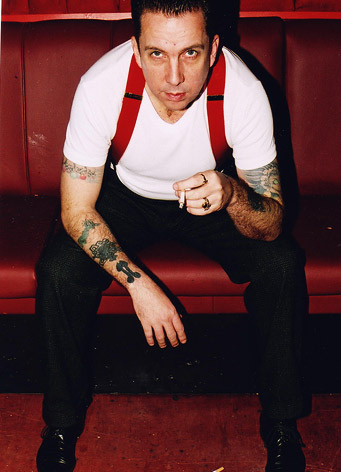Re: Andrew Weatherall Sets
..(New Year's Eve i think??)
..(New Year's Eve i think??)



 Andy's first solo effort under the moniker Sabres of Paradise was a reconstruction of Throbbing Gristle's 'United'. Throbbing Gristle were Genesis P-Orridge, Cosey Fanni Tutti, Sleazy and Chris Carter. Their practices in drug induced [????? - JE] electronic music, performance art and situationism [nah mate - JE] resulted in over twenty LPs and hundreds of head-**** live shows during the seventies. In fact, it can be said that TG were early pioneers of techno, they just didn't have ponytails. The best examples of TG's output can be probably reduced to just two releases - Twenty Jazz Funk Greats and the grisly D.O.A. Third Annual Report [Wot no Heathen Earth?! - JE].
Andy's first solo effort under the moniker Sabres of Paradise was a reconstruction of Throbbing Gristle's 'United'. Throbbing Gristle were Genesis P-Orridge, Cosey Fanni Tutti, Sleazy and Chris Carter. Their practices in drug induced [????? - JE] electronic music, performance art and situationism [nah mate - JE] resulted in over twenty LPs and hundreds of head-**** live shows during the seventies. In fact, it can be said that TG were early pioneers of techno, they just didn't have ponytails. The best examples of TG's output can be probably reduced to just two releases - Twenty Jazz Funk Greats and the grisly D.O.A. Third Annual Report [Wot no Heathen Earth?! - JE].







We process personal data about users of our site, through the use of cookies and other technologies, to deliver our services, personalize advertising, and to analyze site activity. We may share certain information about our users with our advertising and analytics partners. For additional details, refer to our Privacy Policy.
By clicking "I AGREE" below, you agree to our Privacy Policy and our personal data processing and cookie practices as described therein. You also acknowledge that this forum may be hosted outside your country and you consent to the collection, storage, and processing of your data in the country where this forum is hosted.

Comment